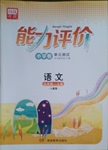题目内容
If I you,I give it to Tom .
A.was;would B.were;would C.am;will D.am ,would
B

 能力评价系列答案
能力评价系列答案 唐印文化课时测评系列答案
唐印文化课时测评系列答案One day, I happened to meet an Englishman in the street and soon we began to talk. As I was talking about how I was studying English, the foreigner seemed to be very surprised, gently shaking his head and saying “You don’t say!”
I was confused, and I thought, “Perhaps this is not a right thing to talk about.” Then I said to him, “Well, shall we talk about the Great Wall? Have you ever visited it?”
“Certainly! Everyone back home will laugh at me if I leave here without seeing it. The Great Wall is wonderful! ” “Yes, it is one of the wonders in the world. And people of many countries have come to visit it.” As I went on telling him more about it, he stopped me again, “You don’t say!”
I couldn’t help asking, “Why couldn’t I talk about it?”
“Well, I didn’t stop you talking about it,” he answered, greatly surprised.
“Didn’t you say ‘You don’t say!’?” I asked again.
Hearing this, the foreigner laughed loudly. He began to explain, “’You don’t say!’ means ‘Really’. Perhaps you know little about English idioms(习惯用语).”
Wow! How foolish I was! Since then I have been careful with English idioms.
1.What made the foreigner laugh loudly?
|
A.English idioms. |
|
B.The writer’s question. |
|
C.Their talking about the Great Wall |
|
D.The writer’s way of learning English |
2.Where does the story most probably happen?
|
A.In China. |
B.In America. |
|
C.In England. |
D.In Japan. |
3.The English idiom “You don’t say!” means _______.
|
A.Thank you |
B.Excuse me |
C.OK |
D.Really |
4.What does the writer learn from his own experience? He should _______.
|
A.improve his spoken English |
|
B.speak with foreigners in a polite way |
|
C.pay attention to English idioms |
|
D.be brave enough talking with foreigners |
5.The story tells us _______ between languages in different countries.
|
A.the difference |
B.the popularity |
|
C.the grammar rule |
D.the change |